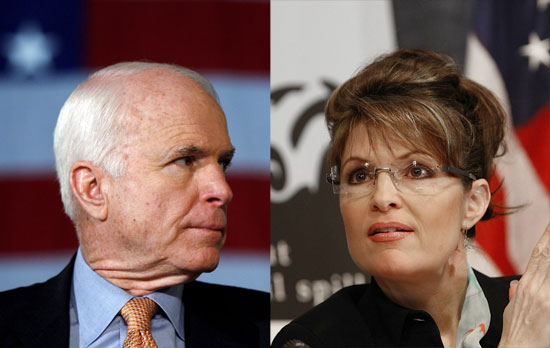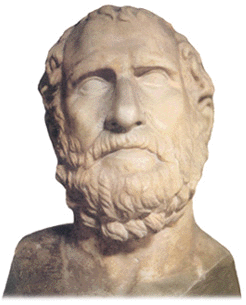
“The president and I, and your fellow citizens, want nothing more than to have you and all of your comrades return home safely at the end of this tour of duty. We're going to do everything we can to make that happen.” That’s Vice President Cheney speaking to American troops in Iraq, just this week.
Vice President Cheney toured Baghdad to mark the fifth anniversary of the U.S. invasion. In comments he made to the press, he called that invasion and the subsequent occupation, now entering its sixth year, “a difficult, challenging, but nonetheless successful endeavor." In those same comments he remarked upon the “phenomenal” improvements to security that had been achieved by the “troop surge” which is now more than a year old.
“Phenomenal.”
At about the same time the Vice President made that comment, in the holy city of Karbala, a suicide bomber killed 40 and wounded more than 60 more in a crowd gathered near a sacred Shiite shrine. At about the same time he said we shouldn’t be “so eager" to draw down troops in Iraq, two U.S. servicemen were killed by a roadside bomb as they travelled north of the capital city of Baghdad.
As of the anniversary date of the original U.S. invasion nearly 4,000 American soldiers have lost their lives in Iraq. More than 300 from other coalition force nations have died there as well. The most conservative estimates place the Iraqi death toll at over 90,000 with more than 90% of those being civilian deaths.Current estimates place the financial cost of the war to date at approximately one half trillion dollars. That’s $500,000,000,000.00...”Phenomenal.”
Some might recall that the original invasion of Iraq was premised on the immediate and pressing need to disarm Saddam Hussein, who was said to possess dangerous weapons of mass destruction and an inclination and capacity to use them. It’s nearly five years since we learned that no such weapons, no such capacity existed.
Others might remember that in the build up to the war we were told time and again of Hussein’s involvement with al-Qaeda and the September 11th terrorists. Perhaps, it is in deference to the anniversary of that particular illusion that the Pentagon announced, as Cheney toured Baghdad’s Green Zone, that it would not publicly distribute a report, the product of an exhaustive study, that has once again found no such connection between Hussein and al-Qaeda ever existed.
Still others might remember when the mission was first redefined, when we were told that our purpose in Iraq was to establish a free and democratic country for its citizens —that only pessimists and quibblers would complain about the white lie false premise for such a good war, one that removed a brutal tyrant and won freedom for an oppressed people. We had ushered in a “
watershed moment in the story of freedom,” as President Bush described it—Iraqi elections, that's what this war was about. That was December 2005. Perhaps some still remember the purple fingertips.
That was more than two years ago. There was reason to believe our troops would come home back then. Americans wanted them home, polls at the time said so plainly. Iraqis wanted them to leave, polls said this plainly as well. If this war had indeed become something about democracy and freedom, it would surely have to be over soon.
But we all know that’s not how it played out in the ensuing year. As violence began to spiral and the sharp lines of sectarian rivalry only sharpened, our troops became more and more the beat cops on a street where nobody spoke their language. As we had armed and equipped Iraq’s army and police we began to hear reports of those same forces becoming party to the most atrocious aspects of the conflict. We started using words like civil war —and what was painfully unclear was what side of that war we were on. There were those in this country and in Iraq who argued that the American presence only served to galvanize radical and violent action, to provide a scapegoat for some, a target for others, and political cover for everyone involved.
It was seeing this that the American people began to react more forcefully and negatively towards the war. Perhaps, we had opted not to change horses midstream in 2004 —in 2006 we began to appreciate that the horse was drifting down river. Congress began to debate in earnest about ways to pursue an end to this war —even though our president still spoke glowingly of the achievements and shrugged over a few “challenges” —even though Vice President Cheney opined that, on the whole, what we had in Iraq was “a remarkable success.” Debate in the Congress began to address the notion of linking U.S. support for Iraq to progress on political conciliation. In November of that year Democrats took both houses of Congress on the stength of disaffection with the war. Later the Iraq Study Group released its bipartisan plan for a new approach featuring regional diplomacy and —yes— a steady and certain withdrawal of American forces. In Iraq’s own legislature there was call for a timetable for U.S. withdrawal.
But in the world view of President George W. Bush and Vice President Richard B. Cheney, you can’t go letting the public and their opinions interfere in a war for democracy and freedom. The administration took the Iraq Study Group Report and the apparent message of a newly elected Democratic Congressional majority and they thanked us all for our input ...and set about the exact opposite in terms of policy.
Of course, President Bush didn’t present it to us as such. The president introduced us to a new term, “
the surge” —30,000 more American soldiers on Iraqi soil. The “surge” was offered in response to those other notions such as the ISG’s proposals. As a “surge” it was to be, by definition, a temporary thing, only so long as necessary to allow the Iraqi government and rival factions to achieve a sustainable peace and a reasonable civil order.
It was well over a year ago that the president outlined his plan, the method and the goals. We would “provide space” and Iraq would reform and reconcile —they would “progress” politically. He outlined eighteen separate benchmarks for this progress, ranging from constitutional and civil rights reform, to local elections and secularization of the country’s internal security.
“America will hold the Iraqi government to the benchmarks it has announced." That’s what the President said, well over a year ago.
Early this year the
Center for American Progress released a study of Iraq’s performance on these benchmarks. There was really no surprise in it. Just as General Patreus said last Summer as he testified before Congress —and just as the Government Accountability Office reported last Fall, the CAP report observed that while some of the military and security objectives have seen progress —statistical declines in violence for example, virtually none of the social and political objectives set out for Iraqi leadership have seen any progress at all. A draft of some legislation on oil revenue sharing has moved somewhat forward through their legislature.
So, here we are, about to embark on the sixth year of our “difficult, challenging, but nonetheless successful endeavor," as Vice President Cheney describes it. Here we are trying to understand what that endeavor is exactly. We have been given a number of different working definitions these past five years: remove a threat, depose a dictator, safeguard a democracy, allow it space... then progress. As Vice President Cheney flies home, and our troops do not, and the previously stated benchmarks of progress seem all but forgotten, as another day’s statistically acceptable amount of blood is washed from the street, it seems the “surge” —first introduced as a means to an end—has become the end in itself. Our purpose in Iraq has become —only to remain.
One of the stops on Vice President Cheney’s anniversary tour of Baghdad was a meeting with Iraqi Prime Minister al-Maliki and U.S. General David Patreus. No doubt one of the things they discussed was progress on the negotiations for a “status of forces agreement” allowing for the continued presence of U.S. troops in Iraq for years to come. Both sides have stated their ambition to conclude this agreement this Summer—it's important that they do, before elections in the Fall: October in Iraq, November here at home.

































